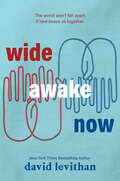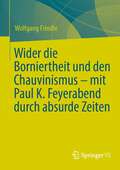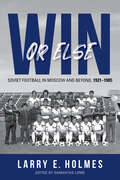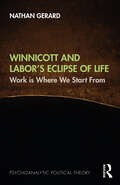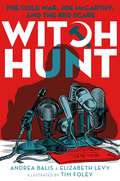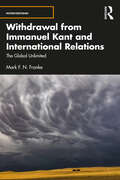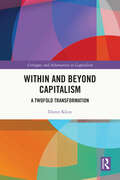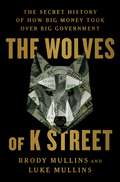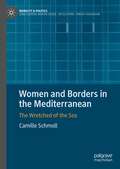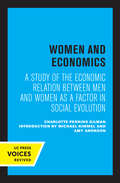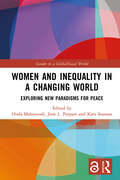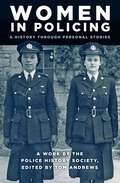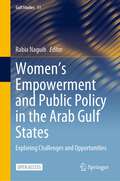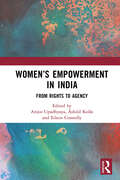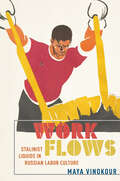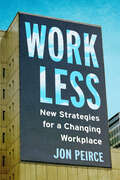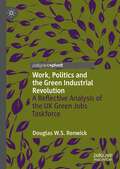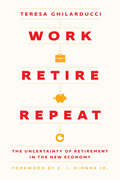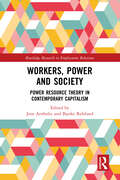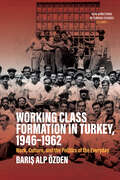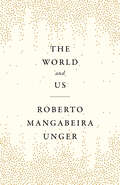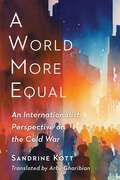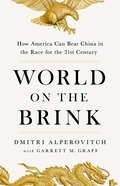- Table View
- List View
Wide Awake Now
by David LevithanFrom the New York Times bestselling author of Every Day, this is a queer love story set against the backdrop of the 2024 presidential election, in a reimagining of David Levithan&’s 2004 novel Wide Awake.When David Levithan published Wide Awake in 2004, he set it in an imagined 2024, where a gay Jewish man had just been elected president of the United States, until a governor decides that some election results in his state are invalid, awarding crucial votes to the other candidate and his fellow party member. What follows is the story of teens Jimmy and Duncan as they explore their relationship, their politics, and their country.In Wide Awake Now, David Levithan is flipping the script and rewriting Jimmy and Duncan&’s story in the real 2024, rather than his imagined version. This is a protest novel for today.Once again, David Levithan proves the critical importance of standing up for what you believe in and the cost of apathy in today&’s political climate.
Wider die Borniertheit und den Chauvinismus – mit Paul K. Feyerabend durch absurde Zeiten
by Wolfgang FrindteAnlässlich seines 100. Geburtstages wird an Paul K. Feyerabend erinnert; es werden seine Ideen diskutiert und es wird gefragt, inwieweit diese geeignet sind, aktuelle Geschehnisse und Konflikte zu beurteilen.
Win or Else: Soviet Football in Moscow and Beyond, 1921–1985
by Larry E. HolmesIn Win or Else, Larry E. Holmes shows us how Soviet football culture regularly disregarded official ideological and political imperatives and skirted the boundaries between socialism and capitalism. In the early 1920s, the Soviet press denounced football as a bourgeois sport that was injurious to both mind and body. Within that same decade, however, it blew up, becoming the most popular spectator sport in the USSR and growing into a fiercely competitive business with complex regional and national bureaucracies, a strong international presence, and a conviction that victory on the field was also a victory of Soviet supremacy. Writing as both historian and fan, Holmes focuses his study on the provincial Kirov team Dinamo from 1979 to 1985, when the club played at both its worst and its best. Spurred by a dismal 1979 season, the team's administrators and regional authorities had two options: obey Moscow's edict to reduce expenditures on professional sports or seek out new—and often illicit—funding sources to fill out a team of champions. Drawing on rich archival materials as well as newspapers and interviews with former players, Win or Else reveals the foundations of Soviet sports culture—and the hazards that teams faced both in victory and in loss.
Winnicott and Labor’s Eclipse of Life: Work is Where We Start From (Psychoanalytic Political Theory)
by Nathan GerardNathan Gerard draws upon the pathbreaking insights of a pediatrician and psychoanalyst D. W. Winnicott to offer a new set of ideas in the novel domain of contemporary work life and its discontents. Locating Winnicott within a broad landscape of critical scholarship that dissects work’s perils, the book positions Winnicott as both a radical critic and creative advocate for building a different kind of work life—one that might make room for the presence of self. By shuffling the discourse on neoliberal subjectivity to reclaim what Winnicott calls “unit status” of the separate self, Gerard differentiates Winnicott from the relational tradition by advocating for Winnicott’s non-relational aspects. Through such analysis, the book reveals how work and home have become two sides of the same impoverished coin, each contributing to a legitimately “bad environment” that perpetuates self-absence and annihilates one’s unique sense of “feeling real” and alive. Winnicott and Labor’s Eclipse of Life will be of interest to readers of Winnicott and psychoanalysis, organization and management studies, and anyone hoping to deepen their engagement with the dynamics of contemporary work life.
Witch Hunt: The Cold War, Joe McCarthy, and the Red Scare
by Andrea Balis Elizabeth LevyA cutting-edge look into a pivotal moment in US history: McCarthy's infamous "witch hunt" for communists during the 1950's Red Scare.At the cusp of the Cold War, Americans were so afraid of communists living among them that they began to hunt them like witches. As Senator Joe McCarthy took up this mantle to hunt down “communists” in the US, citizens grew terrified of being accused, so they turned on each other - pointing fingers at neighbors, friends, and even family.Told through a unique and inviting screenplay-format, brought to life with dozens of illustrations by Tim Foley, and comprised almost entirely of quotes derived from primary sources, Witch Hunt recounts the political craze that gripped America during the Red Scare when McCarthyism forced people to go to extraordinary lengths to keep themselves and their families safe from persecution against their own government.
Withdrawal from Immanuel Kant and International Relations: The Global Unlimited (Interventions)
by Mark F. FrankeThis book shows how the flawed orientation forming Immanuel Kant’s philosophical project is the same from which the discipline of International Relations (IR) becomes possible and appears necessary. Tracing how core problems in Kant’s thought are inescapably reproduced in IR, this book demonstrates that constructive critique of IR is impossible through mere challenge to its Kantian traditions. It argues that confrontation with the Kantian character of IR demands fundamental withdrawal from their shared aims. Investigating the global limits inherent to epistemological and ontological commitments of Kant’s writings and IR, this interdisciplinary study interrogates the racism, sexism, coloniality, white male privilege, and anthropocentricism of both as sites from which such withdrawal may be initiated. Following queer and feminist examinations of how Kant and IR discipline a joint orientation through sex, gender, and sexuality, it indicates how withdrawal is possible. And, considering how Anishinaabe legal tradition opens freedom beyond the restricting horizons of Kant and IR, this book contemplates withdrawal from both as leading to a global unlimited. An essential text for advanced undergraduate and graduate studies, this book will also be of strong interest to those studying the thinking and writings of Kant, neo- and post-Kantian scholarship, and IR theory.
Within and Beyond Capitalism: A Twofold Transformation (Critiques and Alternatives to Capitalism)
by Dieter KleinThis book argues for a twofold transformation to mitigate environmental catastrophe, avert war and overcome poverty and authoritarianism: a struggle for democratic, peace-oriented, social and ecological changes within the framework of a post-neoliberal, but still bourgeois-capitalist society, and a drive towards entry-level projects aimed at a great transformation beyond capitalism. Calling for the embrace of core values and institutions aligned with solidarity as opposed to capitalism, it advances four guiding ideas for the pursuit of such a path: redistribution of life chances and power, socio-ecological restructuring, redesign of democratic institutions, and reversal from confrontation to peace through international cooperation and solidarity. A presentation of the fundamental elements of a left strategy for socioecological transformation, this volume will appeal to scholars of social, political and economic theory with interests in post-capitalist futures.
The Wolves of K Street: The Secret History of How Big Money Took Over Big Government
by Brody Mullins Luke MullinsTwo veteran investigative journalists trace the rise of the modern lobbying industry through the three dynasties—one Republican, two Democratic—that have enabled corporate interests to infiltrate American politics and undermine our democracy.On K Street, a few blocks from the White House, you&’ll find the offices of the most powerful men in Washington. In the 1970s, the city&’s center of gravity began to shift away from elected officials in big marble buildings to a handful of savvy, handsomely paid operators who didn&’t answer to any fixed constituency. The cigar-chomping son of a powerful Congressman, an illustrious political fixer with a weakness for modern art, a Watergate-era dirty trickster, the city&’s favorite cocktail party host…these were the sorts of men who now ran Washington. Over four decades, they&’d chart new ways to turn their clients&’ cash into political leverage, abandoning favor-trading in smoke-filled rooms for increasingly sophisticated tactics like &“shadow lobbying,&” where underground campaigns sparked seemingly organic public outcries to pressure lawmakers into taking actions that would ultimately benefit corporate interests rather than the common good. With billions of dollars at play, these lobbying dynasties enshrined in Washington a pro-business consensus that would guide the country&’s political leaders—Democrats and Republicans alike—allowing companies to flourish even as ordinary Americans buckled under the weight of stagnant wages, astronomical drug prices, unsafe home loans, and digital monopolies. A good lobbyist could kill even a piece of legislation supported by the president, both houses of Congress, and a majority of Americans. Yet, nothing lasts forever. Amidst a populist backlash to the soaring inequality these lobbyists helped usher in, Washington&’s pro-business alliance suddenly began to unravel. And while new ways for corporations to control the federal government would emerge, the men who&’d once built K Street found themselves under legal scrutiny and on the verge of financial collapse. One had his namesake firm ripped away by his own colleagues. Another watched his business shut down altogether. One went to prison. And one was found dead behind the 18th green of an exclusive golf club, with a bottle of $1,500 wine at his feet and a bullet in his head. A dazzling and infuriating portrait of fifty years of corporate influence in Washington, The Wolves of K Street is a masterpiece of narrative nonfiction—irresistibly dramatic, spectacularly timely, explosive in its revelations, and absolutely impossible to put down.
Women and Borders in the Mediterranean: The Wretched of the Sea (Mobility & Politics)
by Camille SchmollThis book offers a history of migration in the Mediterranean written about and from the perspective of women. It gives a complex picture of individual journeys of migrant women, and in a radical departure from the miserabilist or culturalist approach through which women are usually viewed, the book argues for a politically and socially aware, activist feminism that is attuned to what border-obsessed migration policies actually do to women.The research presented in this book is based on multi-sited fieldwork that led the author to closely follow migration survivors. The book depicts the journey of women as they experience brutal separations, have to make heart-wrenching decisions and end up wandering from one place to another, but also as they make acquaintances and find new opportunities. The first-person accounts collected here demonstrate that the reasons behind these women’s decision to leave are anything but simple and linear: they combine various forms of persecution and oppression, a desire for autonomy and a yearning for new horizons, as well as changes in gender relations in their countries of origin.The book further explores the daily lives of women in reception centres, where they are in limbo, their journey as if “suspended,” as they wait for this Europe rejecting them to acknowledge their presence. These women live on and “in” the border – a border that relentlessly haunts them and pursues them everywhere they go. Boredom is constant and, likewise, racism and marginalisation processes are pervasive. At the same time, this study shows that these women are also resisting, strategising, taking charge of their own destinies and journeys, and looking for a way out.Written from the standpoint of a geographer, this study accordingly puts the space of everyday life front and centre. Such a space acts as an impediment to these women’s journeys: it generates a “moralscape” of waiting, which plays a key role in these women’s daily lives.However, it can also help these women gain greater autonomy, thus empowering them, and it may be subverted through various tactics and stratagems, which sometimes take the form of spatialised strategies.
Women and Economics: A Study of the Economic Relation Between Men and Women as a Factor in Social Evolution
by Charlotte Perkins GilmanWhen Charlotte Perkins Gilman's first nonfiction book, Women and Economics, was published exactly a century ago, in 1898, she was immediately hailed as the leading intellectual in the women's movement. Her ideas were widely circulated and discussed; she was in great demand on the lecture circuit, and her intellectual circle included some of the most prominent thinkers of the age. Yet by the mid-1960s she was nearly forgotten, and Women and Economics was long out of print. Revived here with new introduction, Gilman's pivotal work remains a benchmark feminist text that anticipates many of the issues and thinkers of 1960s and resonates deeply with today's continuing debate about gender difference and inequality. Gilman's ideas represent an integration of socialist thought and Darwinian theory and provide a welcome disruption of the nearly all-male canon of American economic and social thought. She stresses the connection between work and home and between public and private life; anticipates the 1960s debate about wages for housework; calls for extensive childcare facilities and parental leave policies; and argues for new housing arrangements with communal kitchens and hired cooks. She contends that women's entry into the public arena and the reforms of the family would be a win-win situation for both women and men as the public sphere would no longer be deprived of women's particular abilities, and men would be able to enlarge the possibilities to experience and express the emotional sustenance of family life. The thorough and stimulating introduction by Michael Kimmel and Amy Aronson provides substantial information about Gilman's life, personality, and background. It frames her impact on feminism since the Sixties and establishes her crucial role in the emergence of feminist and social thought. This title is part of UC Press's Voices Revived program, which commemorates University of California Press's mission to seek out and cultivate the brightest minds and give them voice, reach, and impact. Drawing on a backlist dating to 1893, Voices Revived makes high-quality, peer-reviewed scholarship accessible once again using print-on-demand technology. This title was originally published in 1998.
Women and Inequality in a Changing World: Exploring New Paradigms for Peace (Gender in a Global/Local World)
by Hoda Mahmoudi Jane L. Parpart Kate SeamanWomen and Inequality in a Changing World explores the obstacles women continue to face to their equal participation in all areas of daily life—political, social, and economic—which persist despite the growth in the education of girls, large-scale social movements, and political waves. The volume widens and deepens understanding of women in relation to the inequalities they face, based not only on gender, but also on race, class, religion, and more. It also highlights the progress that women have made, and how this progress contributes to the creation of more peaceful and prosperous societies. This interdisciplinary book brings together leading scholars and practitioners from across the globe to provide a wide range of perspectives and experiences, examine crucial questions, and offer new ideas and innovative solutions to increasing the role of women moving forward. This book will be of great interest to students and scholars of gender studies, women’s studies, and political science, as well as practitioners working at the intersection of women and global issues. The Open Access version of this book, available at www.taylorfrancis.com, has been made available under a Creative Commons Attribution-Non Commercial-No Derivatives 4.0 license. Please note that Chapter 6 is excluded from this Creative Commons license. Pieces of this chapter were previously published in: Golan, G., ‘Autobiographical Note’ in Galia Golan: An Academic Pioneer on the Soviet Union, Peace and Conflict Studies, and a Peace and Feminist Activist (PAHSEP, Vol. 22), published 2018, Springer International Publishing, reproduced with permission of SNCSC. The author is grateful to the publisher for permission to reuse the material, which is still copyright protected and owned by the publisher.
Women in Policing: A History through Personal Stories
by Tom AndrewsThe history of policing in Britain is a considerably under-researched subject, and the advancement of women within that history even more so. This book seeks to fill that gap, by tracking the progress of women in policing - a story that is longer and more complex than perhaps first meets the eye.Rather than taking a broad narrative overview of women's progress in the realm of law enforcement, this book examines individual experiences within that history. It tells women’s stories as a representative snapshot of the time in which they policed, allowing the reader to understand the wider context whilst taking the time to relfect on those women who have made the ultimate sacrifice in the line of duty.Assembled from a collection of experts in the field of police history and the Police History Society, this is a must-read for anyone with an interest in women’s, social, or policing history in Britain.
Women, Peace and Security: An Introduction
by Joan Johnson-FreeseThis book offers an accessible overview of the issues related to the Women, Peace, and Security (WPS) global agenda. This new edition has been updated and includes new chapters on WPS and Environmental Change and on WPS in Regional and Security Organizations. The 2nd edition provides explains Women, Peace and Security as a security framework, different though related to both gender equality as a social justice issue or a Diversity, Equity and Inclusion issue. Within the context of the changing nature of warfare, a complex and volatile global political climate, and through consideration of empirical evidence, it examines the definitions, theoretical underpinnings and methodological challenges associated with implementing WPS. It then discusses with more specificity violence against women, women civilians in war, the role of women in peacemaking, women in the military and in development, and women politicians, with new material on environmental change and on regional and security organisations. Examples and case studies draw from Africa, Asia, the Middle East, Europe and North and South America. The need for more sex-disaggregated data on every topic is emphasized throughout, necessary to both demonstrate relationships between gender and security and to identify solutions to problems. The book concludes with a look to the future and number of action items from the macro to the micro level. This book will be of much interest to students of peace studies, security studies, gender studies and IR, as well as professional military college students.
Women's Empowerment and Public Policy in the Arab Gulf States: Exploring Challenges and Opportunities (Gulf Studies #11)
by Rabia NaguibThis open access book explores the various dimensions of women’s empowerment in public policy in the Gulf Cooperation Council (GCC) region, with a particular focus on Qatar, comparing the country to the other Gulf states. Through its rich compilation of empirical qualitative research, the text unpacks the various ways in which women’s empowerment materializes in the GCC context, providing insights into public policy perspectives in high-income rentier states more broadly. The Arab world has long been part of the global dialogue on women’s economic and political empowerment and the GCC has, over the past decade, situated women’s empowerment amongst their respective national priorities and long-term strategies. In turn, the Gulf has seen gradual implementation of policies aimed at women, specifically, in looking to attract and retain them in the labour market, and in the public sector more broadly. The collection surveys and evaluates the progress made in recent decades, paying close attention to the cultural and policy constraints still limiting women’s empowerment in the Gulf. With a key linkage to SDG5, this book is a timely text addressing the context and drivers behind policies centering on women in the Arab region, in its analysis of the interplay of international women’s empowerment discourse and regional public policy decisions. It is relevant to researchers and policy makers focused on women and gender issues in relation to social, cultural, economic, and political empowerment in the Gulf specifically, but also in the Arab world and beyond.
Women’s Empowerment in India: From Rights to Agency
by Anjoo Upadhyaya Åshild Kolås Eileen ConnollyThe volume brings together readings describing a range of less-traversed aspects and transferences of women’s rights and struggles in India and develops a comprehensive understanding of the interface between women’s activism and politics.The book documents and discusses diverse ways in which Indian women have struggled for empowerment, political voice and representation, and rallied against injustice and discrimination. Against the backdrop of women’s assertion of rights and negotiations for empowerment, the chapters in this volume explore diverse facets of collective agency, and emanations of women’s politico-legal struggles against stereotypes of gender and class in post-independence India. While the donor-driven international community has been eager to celebrate the successes of its global normative agenda-setting and ‘best practices’ approach, this book - based primarily on field research by the contributors - showcases authentic local ownership and women’s own agency, taking seriously the need to understand the cultural context and pay attention to intersectionality. It presents various examples of women’s activism for change, reflecting on the quotidian struggles and dynamic assertions of voice and political power, within and outside of formal political institutions. The book is a contribution to the debate about agency and ownership as key aspects of empowerment, highlighting women who defy dominant narratives.It will be an essential read for students and academics of political science, gender studies, sociology and social sciences, and cultural studies. It will also be of interest to readers interested in the history of women’s movements and their participation in national and local politics in India.
Work Flows: Stalinist Liquids in Russian Labor Culture (NIU Series in Slavic, East European, and Eurasian Studies)
by Maya VinokourWork Flows investigates the emergence of "flow" as a crucial metaphor within Russian labor culture since 1870. Maya Vinokour frames concern with fluid channeling as immanent to vertical power structures—whether that verticality derives from the state, as in Stalin's Soviet Union and present-day Russia, or from the proliferation of corporate monopolies, as in the contemporary Anglo-American West. Originating in pre-revolutionary bio-utopianism, the Russian rhetoric of liquids and flow reached an apotheosis during Stalin's First Five-Year Plan and re-emerged in post-Soviet "managed democracy" and Western neoliberalism.The literary, philosophical, and official texts that Work Flows examines give voice to the Stalinist ambition of reforging not merely individual bodies, but space and time themselves. By mobilizing the understudied thematic of fluidity, Vinokour offers insight into the nexus of philosophy, literature, and science that underpinned Stalinism and remains influential today. Work Flows demonstrates that Stalinism is not a historical phenomenon restricted to the period 1922-1953, but a symptom of modernity as it emerged in the twentieth century. Stalinism's legacy extends far beyond the bounds of the former Soviet Union, emerging in seemingly disparate settings like post-Soviet Russia and Silicon Valley.
Work Less: New Strategies for a Changing Workplace
by Jon Peirce“Peirce tells the intriguing story of the battle for shorter hours … and why now is finally the moment for a breakthrough that would give us all more of the precious gift of time.” — LINDA McQUAIG, journalist and authorYou can’t have a healthy economy with an unhealthy work force. Work Less proposes ways to reduce work hours and keep workers happier, healthier, and more productive.Recent years have revealed just how stressed out many workers are. While the trend to longer hours has been developing for several decades, the trend’s effects have been aggravated during the pandemic by the growing use of Zoom and other new technologies for meetings with clients, customers, and co-workers.Exhausted and fed up, today’s workers are starting to insist on shorter hours and greater flexibility as to where they do their work. There is growing consensus that the forty-hour week, the norm since the 1940s, has outlived its usefulness. And there is an urgent need for new work schedules that adequately reflect the far greater intensity of work today, as well as the greater family demands on a labour force made up of almost fifty percent women, who bear the brunt of domestic duties.Work Less offers practical scheduling suggestions to employers and workers and numerous policy options for government policy-makers to improve working conditions.
Work, Politics and the Green Industrial Revolution: A Reflective Analysis of the UK Green Jobs Taskforce
by Douglas W.S. RenwickIn 2020, UK Prime Minister Boris Johnson launched The Green Jobs Taskforce, which extended and articulated the green jobs policy of his government and its position within conservative political ideology. This book critically highlights gaps in the political and business decision-making of his Taskforce, most notably on: the limited role of employers and HRM associations in skills building for staff in non-polluter industries (solar and wind); issues of a fair and just transition for workers losing jobs in the polluter industries (fossil fuels); and the lack of employee voice in both work arenas. The overtly pro-conservative and political nature of this UK Taskforce is also analyzed, which occurs and operates in opposition to British trade unions and the wider labor movement, by not prioritizing the just transition, alongside the extensive skills, training and passporting requirements that British workers need to gain decent, green jobs.This book is distinctive in offering the first in-depth analysis and critique of the UK Green Jobs Taskforce, in examining this Taskforce using conservative political ideas, and by critiquing it too. Little academic literature is available globally on the business impact and analysis of UK governmental sustainability policy, and this study can provide wider learning points, lessons and implications for other green job plans being formed and enacted in the EU, USA and other countries. It will be of great interest to academics and students of sustainability, HRM, organizational behavior, organization studies and employment relations.
Work, Retire, Repeat: The Uncertainty of Retirement in the New Economy
by Teresa GhilarducciA damning portrait of the dire realities of retirement in the United States—and how we can fix it. While the French went on strike in 2023 to protest the increase in the national retirement age, workers in the United States have all but given up on the notion of dignified retirement for all. Instead, Americans—whose elders face the highest risk of poverty compared to workers in peer nations—are fed feel-good stories about Walmart clerks who can finally retire because a customer raised the necessary funds through a GoFundMe campaign. Many argue that the solution to the financial straits of American retirement is simple: people need to just work longer. Yet this call to work longer is misleading in a multitude of ways, including its endangering of the health of workers and its discrimination against people who work in lower-wage occupations. In Work, Retire, Repeat, Teresa Ghilarducci tells the stories of elders locked into jobs—not because they love to work but because they must. But this doesn’t need to be the reality. Work, Retire, Repeat shows how relatively low-cost changes to how we finance and manage retirement will allow people to truly choose how they spend their golden years.
Workers, Power and Society: Power Resource Theory in Contemporary Capitalism (Routledge Research in Employment Relations)
by Jens Arnholtz Bjarke RefslundThe book addresses how power and power resources remain important analytically as well as empirically dimensions for analysing contemporary capitalism. It provides a theoretical framework for studying, understanding, and explaining changes in the world of work and how that leads to changes in contemporary capitalist societies. Changes in the world of work are closely related to increasing inequality, growing social unrest, and societal polarisation. Hence the book seeks to deepen our understanding of how developments in the sphere of work have implication far beyond the direct impact on workers. The book focuses on how workers and unions utilise their various power resources to off-set the power advantage of employers and capital in the sphere of labour politics, which have crucial linkages with both cultural life, politics, and the market. Although workers’ and unions’ power and influence have been declining almost universally across the world, the argument in the book is that they still hold power resources that can challenge and sometimes alter outcomes in another direction than what employers and capital wants. Hence the theory can help understand the possibilities that workers and unions still have and how these resources affect the outcomes of the labour-capital struggle. A core contribution of the book is that it develops theoretical propositions about power resource theory, provides clear definitions of the core concepts as well as apply the power resource theory to a range of new or emerging topic fields like global value chains, minimum wages, and migrant workers.
Working Class Formation in Turkey, 1946-1962: Work, Culture, and the Politics of the Everyday (New Directions in Turkish Studies #1)
by Barış Alp ÖzdenThe political identities of the Turkish working class began a transformative journey that started during a period of industrialization following World War II and continued until the military interventions of 1960. Working Class Formation in Turkey addresses common, structural generalizations to recover the complex history of developing political, recreational, familial, residential, and work-related lives of Turkish workers. Drawing on a wide range of historical sources, this volume brings the concept of “everydayness” to the fore and uncovers the local contexts that fostered class solidarity, examines labor practices that fueled radicalism, and analyzes the shifting dynamics of industrial discipline that impacted working class identity and culture.
The World and Us
by Roberto Mangabeira Unger"A restless visionary striving to realize the highest aspirations of modernity itself."–New York TimesA radical re-envisioning of the human condition by the acclaimed Brazilian philosopherIn The World and Us, Roberto Mangabeira Unger sets out to reinvent philosophy. His central theme is our transcendence, everything in our existence points beyond itself, and its relation to our finitude: everything that surrounds us, and we ourselves, are flawed and ephemeral.He asks how we can live so that we die only once, instead of dying many small deaths; how we can breathe new life and new meaning into the revolutionary movement that has aroused humanity for the last three centuries, but that is now weakened and disoriented; and how we can make sense of ourselves without claiming for human beings a miraculous exception to the general regime of nature. For Unger, philosophy must be the mind on fire, insisting on our prerogative to speak to what matters most.From this perspective, he redefines each of the traditional parts of philosophy, from ontology and epistemology to ethics and politics. He turns moral philosophy into an exploration of the contest between the two most powerful contemporary moral visions: an ethic of self-fashioning and non-conformity, and an ethic of human connection and responsibility.And he turns political philosophy into a program of deep freedom, showing how to democratize the market economy, energize democratic politics, and give the individual worker and citizen the means to flourish amid permanent innovation.
A World More Equal: An Internationalist Perspective on the Cold War (Columbia Studies in International and Global History)
by Sandrine KottThe post–World War II period is typically seen as a time of stark division, an epochal global conflict between the United States and the Soviet Union. But beneath the surface, the postwar era witnessed a striking degree of international cooperation. The United Nations and its agencies, as well as regional organizations, international nongovernmental organizations, and private foundations brought together actors from conflicting worlds, fostering international collaboration across the geopolitical and ideological divisions of the Cold War.Diving into the archives of these organizations and associations, Sandrine Kott provides a new account of the Cold War that foregrounds the rise of internationalism as both an ideology and a practice. She examines cooperation across boundaries in international spaces, emphasizing the role of midsized powers, including Eastern European and neutral countries. Kott highlights how the need to address global inequities became a central concern, as officials and experts argued that economic inequality imperiled the creation of a lasting peace. International organizations gave newly decolonized and “Third World” countries a platform to challenge the global distribution of power and wealth, and they encouraged transnational cooperation in causes such as human rights and women’s rights. Assessing the failure to achieve a new international economic order in the 1970s, Kott adds new perspective on the rise of neoliberalism. A truly global study of the Cold War through the lens of international organizations, A World More Equal also shows why the internationalism of this era offers resources for addressing social and global inequalities today.
A World of Enemies: America’s Wars at Home and Abroad from Kennedy to Biden
by Osamah F. KhalilA sobering account of how the United States trapped itself in endless wars—abroad and at home—and what it might do to break free.Over the past half-century, Americans have watched their country extend its military power to what seemed the very ends of the earth. America’s might is felt on nearly every continent—and even on its own streets. Decades ago, the Wars on Drugs and Terror broke down the walls separating law enforcement from military operations. A World of Enemies tells the story of how an America plagued by fears of waning power and influence embraced foreign and domestic forever wars.Osamah Khalil argues that the militarization of US domestic and foreign affairs was the product of America’s failure in Vietnam. Unsettled by their inability to prevail in Southeast Asia, US leaders increasingly came to see a host of problems as immune to political solutions. Rather, crime, drugs, and terrorism were enemies spawned in “badlands”—whether the Middle East or stateside inner cities. Characterized as sites of endemic violence, badlands lay beyond the pale of civilization, their ostensibly racially and culturally alien inhabitants best handled by force.Yet militarized policy has brought few victories. Its failures—in Iraq, Afghanistan, US cities, and increasingly rural and borderland America—have only served to reinforce fears of weakness. It is time, Khalil argues, for a new approach. Instead of managing never-ending conflicts, we need to reinvest in the tools of traditional politics and diplomacy.
World on the Brink: How America Can Beat China in the Race for the Twenty-First Century
by Dmitri Alperovitch Garrett M. GraffThe leading national security expert who predicted Putin&’s intention to invade Ukraine argues that China&’s Xi Jinping is preparing to conquer Taiwan in the coming years—with dire stakes for America and the world if he is not deterred We are fully in the midst of Cold War II, this time with China. Taiwan is a new West Berlin, a perilous strategic flashpoint where localized events could trigger a devastating war between nuclear powers. But this outcome is far from inevitable. Laying out the grand strategy for the United States and allies to avoid this fate, the highly respected security analyst Dmitri Alperovitch reveals key actions that could enable America to win the race for the twenty-first century. This sharp, timely book is the essential blueprint for preventing a catastrophe.
